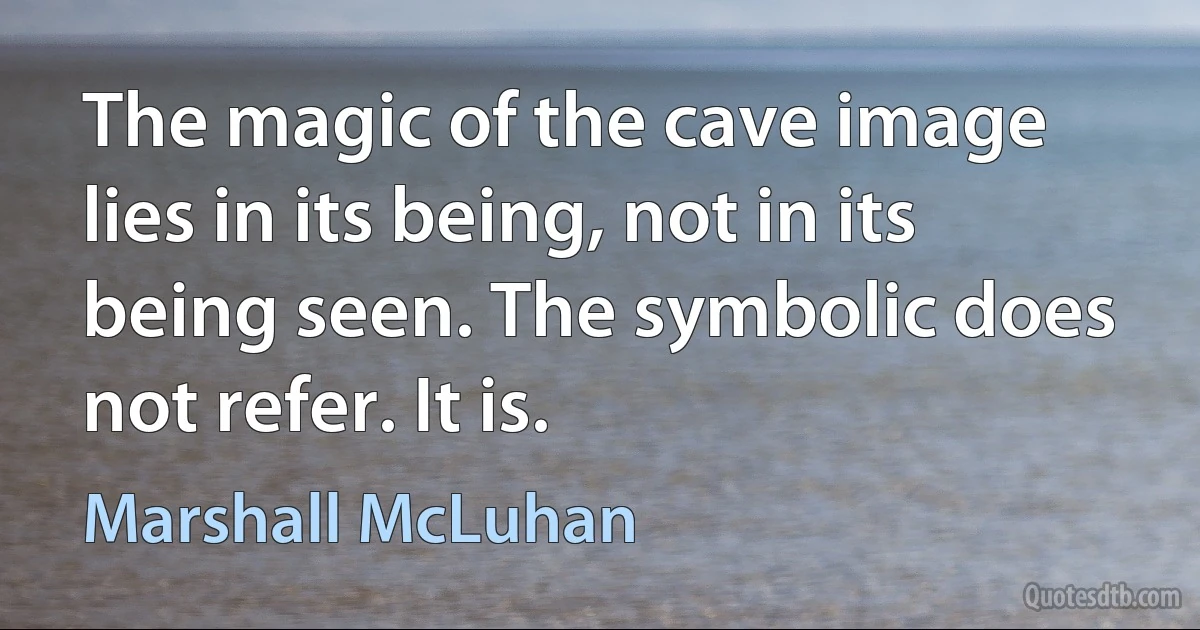Refer Quotes - page 6
The decay of the late, great country of South Africa is beginning to become apparent. The name of the Transvaal has been officially changed to 'Gauteng.' (One of our friends has suggested that in view of this its inhabitants in the future should be referred to as Oranggautengs.) ... And now there is a move afoot to wreck the Kruger National Park, one of the wonders of the world, on the notion that a good bit of its land was 'taken from the blacks.' This idea is somewhat akin to giving Yellowstone Park back to the Blackfeet.

Jeff Cooper
Islam must take the initiative of recognizing motherhood as a social function. Harems must be abolished. No one has the right to refer to Islam as a reason to keep women disenfranchised: abuse of this kind must be brought to an end. Such attitudes do not represent a Western feminism, which has displayed a tendency to impose the measures, whims and mastery of a depraved element among the female sex. Neither is this equality in the European sense. It is an underlining of the equal value of men and women, together with the underlining of the differences between them, which should be preserved.

Alija Izetbegović
In 1946, a Macy Foundation interdisciplinary conference was organized to use the model provided by "feedback systems," honorifically referred to in earlier conferences as "teleological mechanisms," and later as "cybernetics," with the expectation that this model would provide a group of sciences with useful mathematical tools and, simultaneously, would serve as a form of cross-disciplinary communication. Out of the deliberations of this group came a whole series of fruitful developments of a very high order. Kurt Lewin (who died in 1947) took away from the first meeting the term "feedback". He suggested ways in which group processes, which he and his students were studying in a highly disciplined, rigorous way, could be improved by a "feedback process," as when, for example, a group was periodically given a report on the success or failure of its particular operations.

Margaret Mead
I'm exactly the opposite of religious, I'm anti-religious. I find religious people hideous. I hate the religious lies. It's all a big lie. ... I have such a huge dislike. It's not a neurotic thing, but the miserable record of religion. I don't even want to talk about it, it's not interesting to talk about the sheep referred to as believers. When I write, I'm alone. It's filled with fear and loneliness and anxiety - and I never needed religion to save me.

Philip Roth
Now I know it's unfashionable to refer to colonialism in anything other than negative terms. And certainly, no part of the world is unscarred by the excesses of empires. But in the Canadian context, the actions of the British Empire were largely benign and occasionally brilliant...This genius for governance shown by the mother country at the time no doubt explains in part why Canada's path to independence was so long, patient and peaceful.

Stephen Harper
We are honored for research which is today referred to as the "Two Neutrino Experiment". How does one make this research comprehensible to ordinary people? In fact "The Two Neutrinos" sounds like an Italian dance team. How can we have our colleagues in chemistry, medicine, and especially in literature share with us, not the cleverness of our research, but the beauty of the intellectual edifice, of which our experiment is but one brick? This is a dilemma and an anguish for all scientists because the public understanding of science is no longer a luxury of cultural engagement, but it is an essential requirement for survival in our increasingly technological age: In this context, I believe this Nobel Ceremony with its awesome tradition and pomp has as one of its most important benefits; the public attention it draws to science and its practitioners.

Leon M. Lederman
In conversing with persons who are not officially attached to Observatories or in other ways professionally cognizant of the technicalities of practical Astronomy but who nevertheless display great interest... these persons appear to regard the determination of measures like those of the distance of the Sun and Moon as mysteries beyond ordinary comprehension... [and] when persons well acquainted with the general facts of Astronomy are introduced into an Observatory, they are for the most part utterly unable to understand anything which they see...
The measure of the Moon's distance involves no principle more abstruse than the measure of the distance of a tree on the opposite bank of a river. The principles of construction of the best Astronomical instruments are as simple and as closely referred to matters of common school-education and familiar experience, as are those of the common globes, the steam engine, or the turning-lathe; the details are usually less complicated.

George Biddell Airy
After four years of sitting through lectures, I have a feeling you're not in the mood for another one. What I have learned about graduation speeches is that they're too long and rarely remembered. So I'll keep this short. I just can't attest to how memorable it will be. I've also learned that it's important to refer to someone associated with the University. So I picked one, an SMU trustee, who by the way is not here, Reverend Mark Craig. Now, I asked Mark to deliver the sermon at the First United Methodist Church in Austin before my second inauguration as Governor of Texas. I still remember his Fort Worth twang as he talked about Moses. God called Moses to action, and Moses repeatedly found excuses not to act. 'Who am I that I should go to Pharoah, and bring the sons of Israel out of Egypt? Oh, my Lord, I pray, send some other person. I have sheep to tend. And the people won't believe me. I'm not a very good speaker'.

George W. Bush
I... subjoin references to those parts of the work for which I have not been indebted to my knowledge of what has been written before me: much of what is cited is probably not new, indeed it is dangerous for any one at the present day to claim anything as belonging to himself; several things which I once thought to have entered in this list have been since found (either by myself, or by a friend to whom I referred it) in preceding writers.

Augustus De Morgan
There's a misconception that survival of the fittest means survival of the most aggressive. The adjective 'Darwinian' used to refer to ruthless competition; you used to read that in business journals. But that's not what Darwinian means to a biologist; it's whatever leads to reproductive success.

Steven Pinker
In a big picture you can see what o'clock it is afternoon or morning if it's hot or cold winter or summer & what kind of people are there & what they are doing and why they are doing it. The sentiments run beyond words. If a man makes a hot day he makes it like a hot day he once saw or is seeing if a sweet face a face he once saw or which he imagines from old memories or parts of memories & his knowledge and he combines never creates but at the very first combination no man & less of all himself could ever disentangle the feelings that animated him just then & refer each one to its right place.

Thomas Eakins
Modern empiricism has been conditioned in large part by two dogmas. One is a belief in some fundamental cleavage between truths which are analytic, or grounded in meanings independently of matters of fact, and truths which are synthetic, or grounded in fact. The other dogma is reductionism: the belief that each meaningful statement is equivalent to some logical construct upon terms which refer to immediate experience. Both dogmas, I shall argue, are ill-founded. One effect of abandoning them is, as we shall see, a blurring of the supposed boundary between speculative metaphysics and natural science. Another effect is a shift toward pragmatism.

Willard van Orman Quine
Numbers were a mystery to me. I was so far behind. It was only in Nairobi, at age ten, that I figured out anything at all about the way time is calculated: minutes, hours, years. In Saudi Arabia the calendar had been Islamic, based on lunar months; Ethiopia maintained an ancient solar calendar. The year was written 1399 in Saudi Arabia, 1972 in Ethiopia, and 1980 in Kenya and everywhere else. In Ethiopia we even had a different clock: sunrise was called one o'clock and noon was called six. (Even within Kenya, people used two systems for telling time, the British and the Swahili.) The months, the days--everything was conceived differently. Only in Juja Road Primary school did I begin to figure out what people meant when they referred to precise dates and times. Grandma never learned to tell time at all. All her life, noon was when shadows were short, and your age was measured by rainy seasons. She got by perfectly well with her system.

Ayaan Hirsi Ali



